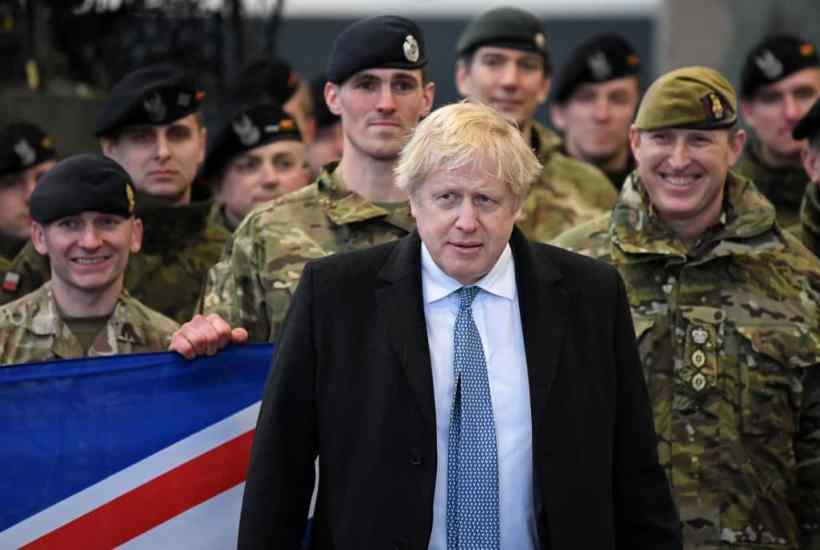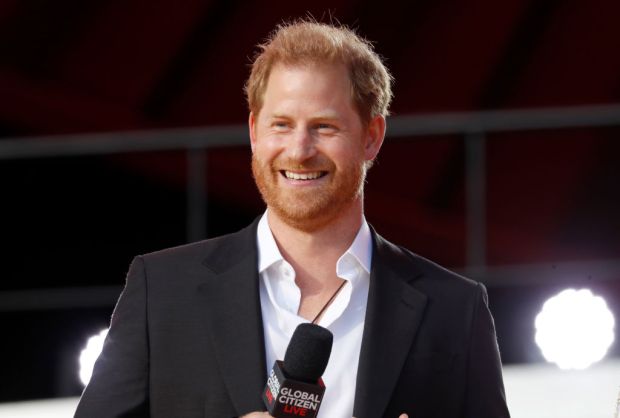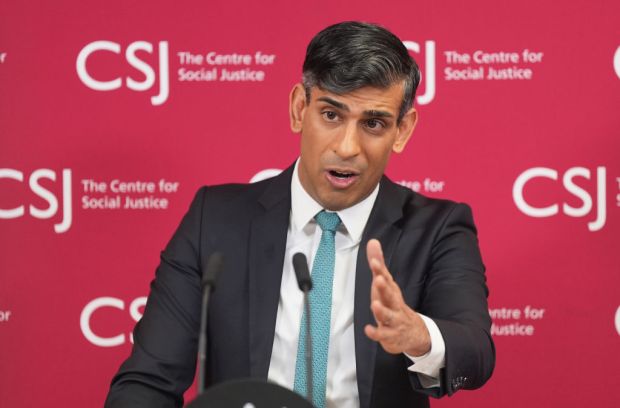With rumours swirling that the Ministry of Defence will see its budget boosted in next week’s spring statement it’s hard not to wonder: was Donald Trump right? The former President repeatedly criticised Nato members in Europe for not contributing enough to support the alliance, relying instead on the US to shoulder the burden. And while the UK has met the Nato commitment to spend 2 per cent of its GDP on defence, we’ve seen a massive decrease in our defence budget over the last half century.
As war returns to Europe, a consensus view has emerged – that the UK grew complacent when it came to security. We recoiled at Emmanuel Macron’s plans for a ‘true European army’, while spectacularly underestimating Russia’s disruptive potential.
The tide has gone out and we’re now discovering who’s been swimming naked. Germany has been spending 1.5 per cent of GDP on defence; Spain 1.4 per cent. Our defence budget was 7 per cent in 1963. Meanwhile, spending on the NHS expanded from around 3 per cent of GDP in 1962 to over 10 per cent in 2020 – growth enabled by the so-called ‘peace dividend’. As the defence budget shrank, the government’s focus shifted towards domestic policy priorities. After all, much of the reduction was the result of the winding down of the Empire. We are not a global power, and we haven’t been since 1957.
But with Germany hiking its budget to 2 per cent of GDP and EU national leaders announcing a ‘substantial increase’ in defence spending across the bloc over the weekend, ministers must ask themselves whether the current budget is sufficient. Politicians of all stripes are demanding a correction: Defence Committee Chair Tobias Ellwood has warned we ‘cannot possibly manage today’s threats on a [defence] budget of 2.2 per cent [of GDP]’. John Healey, Labour’s shadow defence secretary, told Sky News that he expected a ‘big boost to defence’. If there is going to be a significant increase, how would it be paid for?
Almost a year ago to the day, the government published its ‘Integrated Review of Security, Defence, Development and Foreign Policy’. The document surveyed geopolitical trends, security, and Britain’s place in the world order. It laid out a realistic approach towards China, and identified Russia as the more explicit security threat. But while its analysis was refreshingly thoughtful, its conclusions were muddled – with a continued attachment to an outdated idea of Britain’s capacity and military requirements. We do not need, for instance, things like aircraft carriers for out-of-area operations. It’s questionable whether an independent air force is necessary. And the recent commitment to 30 per cent women in the military is a feel-good policy irrelevant to our defence needs.
The great economist Adam Smith believed that defence of the realm was one of the few purposes of the state, along with the administration of justice. In 2018/19 we were spending a little over £43 billion on the Ministry of Defence. That same year, we poured £171 billion into the Department of Health and Social Care, £187 billion on Work and Pensions, and £107 billion on Education.
And yet, the Chancellor has pledged an additional £12 billion towards the NHS this year to help clear the ever-lengthening backlog. Government is coming under immense pressure to provide additional support to households struggling with the cost-of-living crisis. Michael Gove claimed at the weekend that ‘tens of thousands’ of Ukrainian refuges could come to the UK. Local councils will get more than £10,000 for each person – with ‘additional payments for those children who are of school age and need to be accommodated within the education system.’
The planned National Insurance hike next month will only take us so far. And with the Chancellor reportedly firmly opposed to further government borrowing, the only option remaining is cuts to public expenditure. We could start by scrapping childcare subsidies, which come with a £6 billion yearly price tag and are poorly targeted, and should instead focus on supporting those most in need. We could remove corporation tax exemptions. The current level of spending on railways is difficult to justify when many rail users have been able to shift to working from home relatively easily. And we could cut higher education funding and a chunk of the foreign aid budget.
It has been said that Boris Johnson’s problem solving ‘strategy’ involves procrastinating until a situation has built to a point of sufficient crisis that there are few solutions left. No cuts to government spending will be popular. But with a spike in the price of oil already pushing petrol and diesel prices up, economists warning inflation could hit double digits this year and the public finances in a dire state, the Prime Minister can delay no more.
Got something to add? Join the discussion and comment below.
Get 10 issues for just $10
Subscribe to The Spectator Australia today for the next 10 magazine issues, plus full online access, for just $10.



















Comments
Don't miss out
Join the conversation with other Spectator Australia readers. Subscribe to leave a comment.
SUBSCRIBEAlready a subscriber? Log in